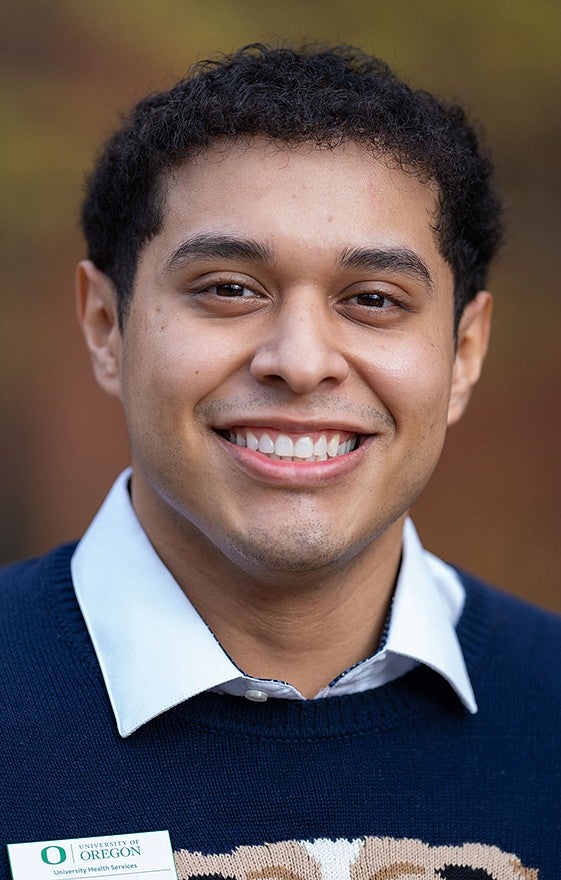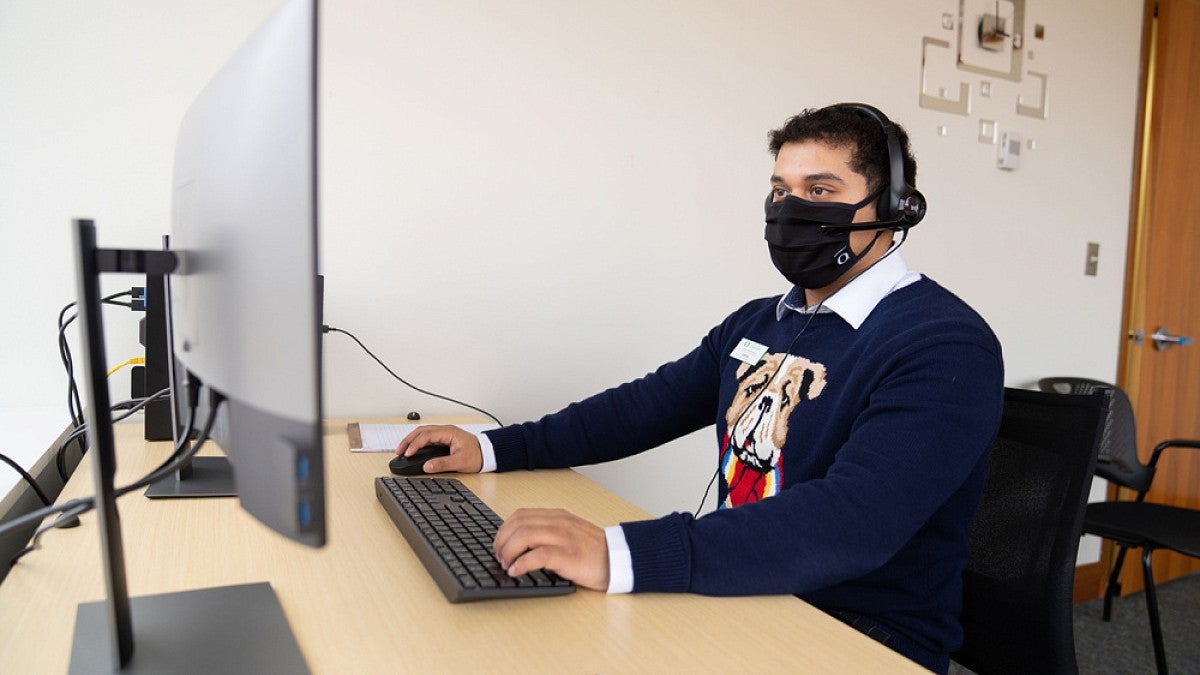First-generation college student Jesus Elias Esquivel will be a doctor someday.
“I’m very determined,” the UO senior said. “For me, it’s not if it will work out. It’s when. I have the willpower to keep pushing, and I’ve already faced so many obstacles.”
Esquivel’s work with the UO’s Corona Corps fits squarely with his aspirations to help underrepresented communities get the health care they need. Along with other UO students, the human physiology major works the phones, helping with case investigation and contact tracing, finding resources for those suffering from COVID-19, and providing an empathetic ear.
That last one can be the hardest, he said. But it’s also the most rewarding.

“However, I’ve recognized that the more you talk with someone, and listen, the more likely you are to find common ground. I’m here to give them a sense of hope. Some have classes to attend. Others have families to feed. It’s rewarding to help them get through these difficult times, reduce their stress, and overcome challenges.”
The UO’s Center for Global Health and University Health Services launched the Corona Corps in July 2020. Working with Lane County Department of Public Health and the Oregon Health Authority, the university has been hiring students to help with support for those affected by the virus.
Esquivel was a member of the first cohort of 16 students to join the effort. Eager to help as the pandemic worsened, he sought ways to make a positive difference.
“During that time, doctors and hospitals were not taking in volunteers,” he said. “I saw this opportunity to help my community. I thought it was the perfect way.”
It was also a way to gain practical experience in health care, said Esquivel, who is president of the UO chapter of the Pre-Student Osteopathic Medicine Association. Esquivel also helps research the impact of stress on families, including stress caused by the global pandemic, and children’s brains.
Esquivel is preparing for the MCAT medical school entrance exam and plans to pursue family medicine, an aspiration inspired by his family’s physician while Esquivel was growing up in Hillsboro.
Esquivel is a DACA recipient and a beneficiary of the UO’s Opportunity through Excellence: Fund the Dream Scholarship. His parents immigrated to the U.S. from Michoacán, Mexico, when he was 2 years old. Esquivel’s family physician was a shining light, compassionate, respectful and trustworthy.
“She focused on providing culturally appropriate primary health care for migrant, seasonal farm workers and others facing difficulty obtaining health care,” Esquivel said. She served as a role model who motivates him to this day.
“The difference between a good doctor and a great one is not what they have to say,” Esquivel said. “It’s their ability to listen.”
—By Ed Dorsch, University Communications


